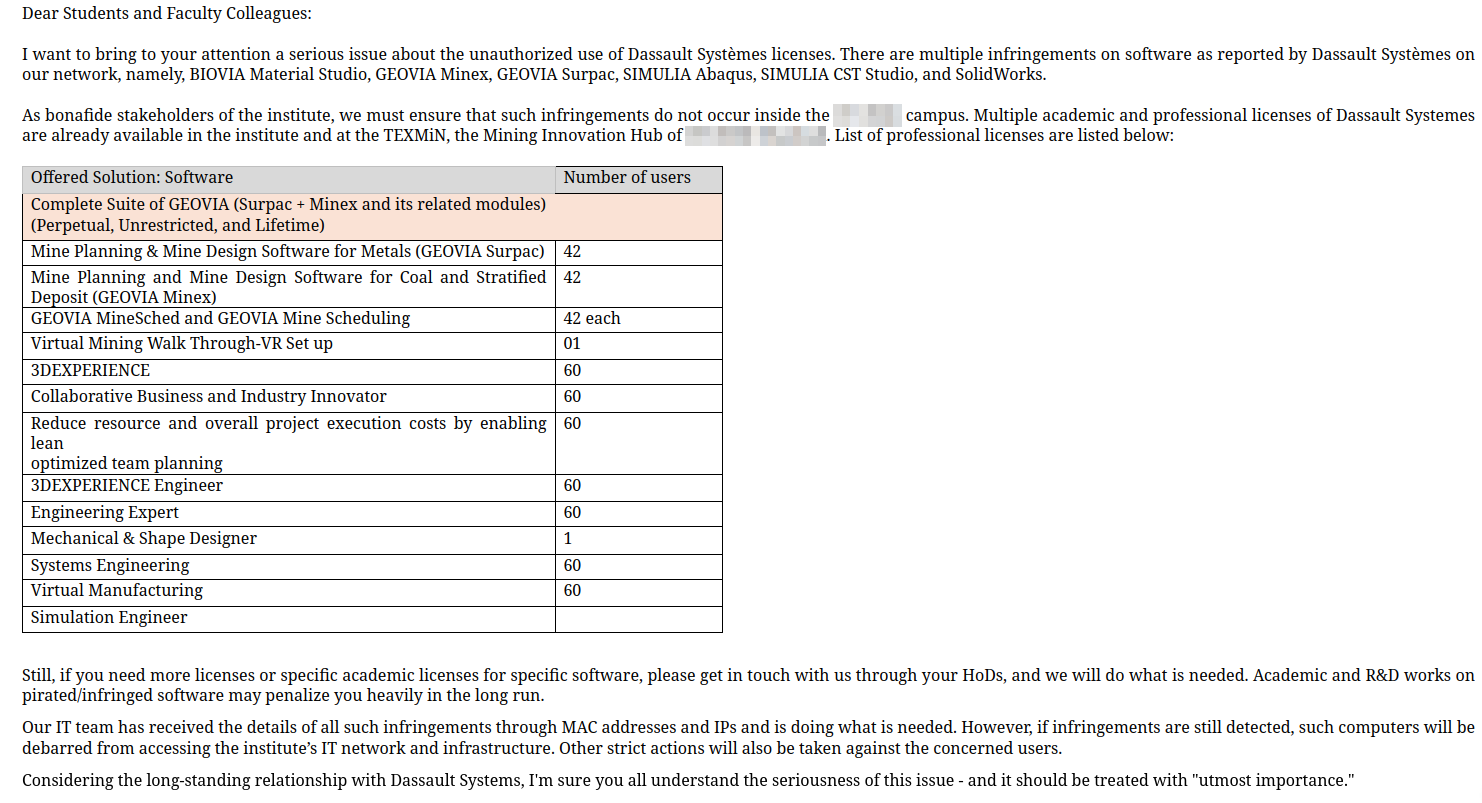this post was submitted on 23 Aug 2024
317 points (99.4% liked)
Piracy: ꜱᴀɪʟ ᴛʜᴇ ʜɪɢʜ ꜱᴇᴀꜱ
55258 readers
253 users here now
⚓ Dedicated to the discussion of digital piracy, including ethical problems and legal advancements.
Rules • Full Version
1. Posts must be related to the discussion of digital piracy
2. Don't request invites, trade, sell, or self-promote
3. Don't request or link to specific pirated titles, including DMs
4. Don't submit low-quality posts, be entitled, or harass others
Loot, Pillage, & Plunder
📜 c/Piracy Wiki (Community Edition):
💰 Please help cover server costs.
 |
 |
|---|---|
| Ko-fi | Liberapay |
founded 2 years ago
MODERATORS
you are viewing a single comment's thread
view the rest of the comments
view the rest of the comments


These softwares use your pc's network connections to send data to the servers which then checks whether you paid a license or not. When they can't use your internet connection, they also add personal information to any file you generate with the softwares such that if you send the file to someone else who has a license they will unknowingly rat on you through their connection.
This sounds evil, possibly violating some EU laws too.
Ok then use a firewall like https://github.com/henrypp/simplewall (I assume that this was on Windows) to block these apps' internet access. There are other good options like the Safing Portmaster (which also works on Linux), OpenSnitch (Linux) and LuLu or Little Snitch on macOS. There are many more options for Linux, iptables, nftables, firewalld, or ufw with a GUI like gufw.
In that case, I'm using a VM where there is absolutely no information about me
I would absolutely use a VM with no internet connection for these, but then all bets are off if those softwares need direct access to GPU, for example. GPU passthrough is a thing, but I haven't had much luck personally.
I have a w11 KVM with a 4080 passed through it wasn't as hard as I thought it would be
I highly recommend you try, it's sweet